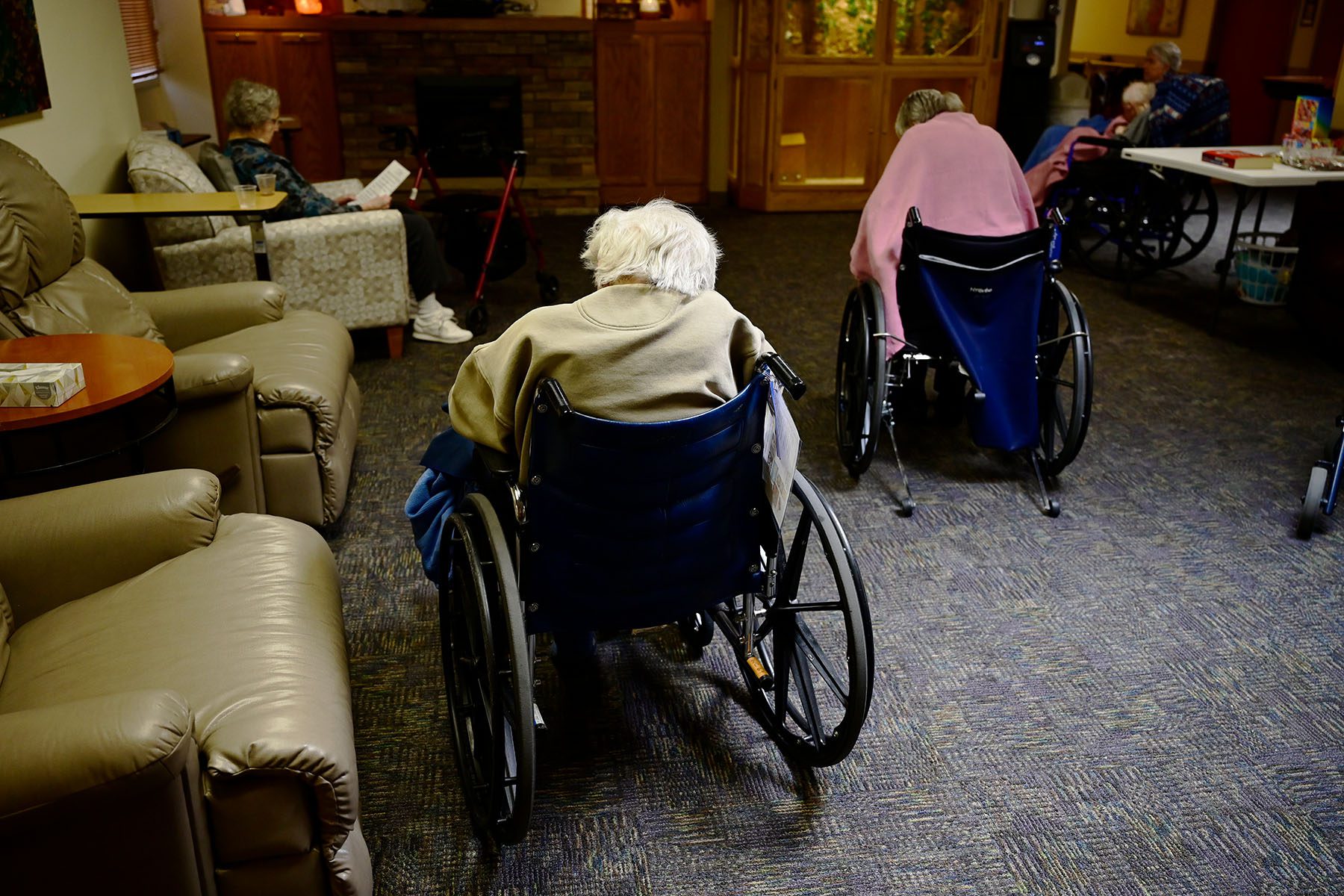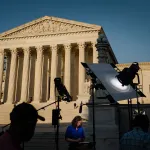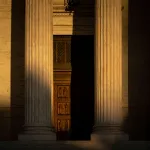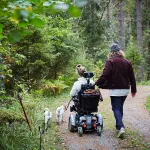The Supreme Court heard oral arguments this week on a case disability, eldercare and health care advocates described as “an assault” on the rights of older adults, people with disabilities and their families. Advocates are so concerned over the potential impact of Health and Hospital Corporation of Marion County v. Talevski that they’re still pressing both sides to withdraw or settle before a decision is rendered.
The case could radically alter Medicaid and a host of other government programs by limiting private citizens’ right to sue when those programs aren’t fairly and safely administered.
The case centers on the late Gorgi Talevski. In 2019, his daughter Suzie Talevski filed a lawsuit against Health and Hospital Corporation of Marion County, alleging that her father had been abused in his Indiana nursing home run by the state-owned company and funded by Medicaid, which provides health care to over 76 million low-income Americans and is the primary funder of long-term care in the United States.
Among other issues,Talevski alleges that her father was overmedicated to the point of chemical restraint — a practice in which a person is sedated so that they are easier to manage, to the detriment of that person’s own health and well-being.
The question before the Supreme Court was not whether Gorgi Talevski was abused, but whether he and his family had the right to sue the company to seek damages.
“There’s a lot at stake. Depending on how the court rules, if someone is abused in a nursing home and they are harmed, their families might not be able to sue the provider,” said Maria Town, president of the American Association of People with Disabilities. Her organization filed an amicus brief with other disability rights organizations.
For months, national and local advocates have attempted to persuade the parties involved in Health and Hospital Corporation of Marion County v. Talevski to withdraw the case or settle, respectively.
“The fear is that the composition of the Supreme Court is such that they will decide in favor of [the nursing home industry]. But also that the decision could be very broad,” Town said.
A broad decision could also impact a variety of programs beyond long-term care, according to Jasmine Harris, a professor at University of Pennsylvania’s Carey School of Law.
“Everything from Temporary Assistance for Needy Families, the Children’s Health Insurance Program, the Supplemental Nutrition Assistance Program, which was formerly known as food stamps” could be impacted, along with Medicaid and Medicare, Harris told The 19th.
Madiba Dennie, a legal scholar with the Brennan Center for Justice at New York University School of Law, also expressed concern that the case may be an opportunity for “judges to close the doors of justice to ordinary people.” If the court were to limit the right of private citizens to sue government programs, then it would become much more difficult for regular people to protect themselves from harm incurred as a result of those programs.
Town also expressed concern about the lack of recourse outside of the court system that disability advocates and advocates for older adults will have if the court rules in favor of Health and Hospital Corporation of Marion County.
“Our ability to shift policies is more restricted because it’s just harder to get stuff done in Congress. Things have become more polarized,” Town said.
But during oral arguments on Tuesday, some of the court’s conservative justices — whom advocates are most concerned about — expressed skepticism for the arguments made by Health and Hospital Corporation of Marion County.
In particular, Justice Brett Kavanaugh pointed to the text of the statute under discussion, which discusses the legal rights afforded to nursing home patients. Health and Hospital Corporation of Marion County argued that the statute in question, Section 1983, was not specific enough to allow for lawsuits.
Section 1983 is part of the bedrock of civil rights law in the United States. It was originally passed as part of the Ku Klux Klan Act of 1871, and gives private individuals the right to sue state government employees for civil rights violations.
“It’s a very uncomfortable fact for you that the statute says ‘rights’ over and over again,” Kavanaugh said.
More liberal justices were also critical in their questioning.
“It seems to me odd to suggest that we as a court can reinterpret the word ‘law’ [in Section 1983] to carve anything out,” said Justice Ketanji Brown Jackson.
Advocates can and will continue to press both sides to withdraw the case from the Supreme Court. Until a final decision is issued, it is still possible to stop it from proceeding.
Shira Walkshlag, senior director of Legal Advocacy for the Arc of the United States, told The 19th that she “doesn’t do predictions” and therefore the strategy will be to continue to apply pressure. The Arc is one of the largest disability organizations in the United States, and also submitted an amicus briefs.
“Now we have to wait for the decision. But we will also continue to advocate against [Health and Hospital Corporation of Marion County]’s assault on disability rights. The advocacy is to try to get [them] to withdraw the case,” she said.







